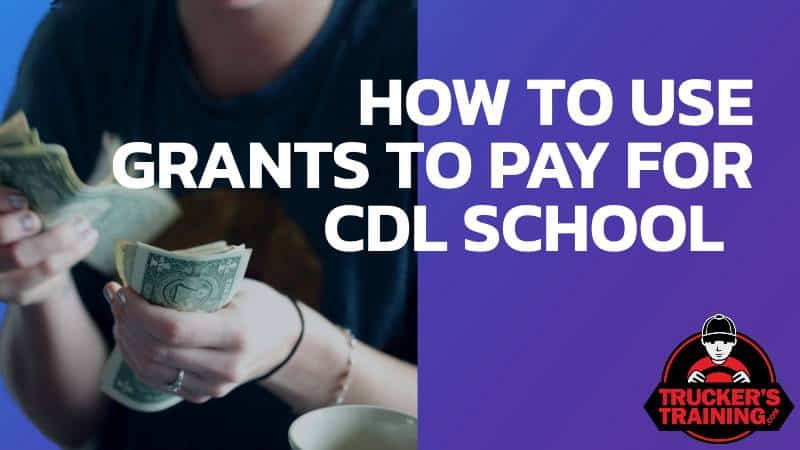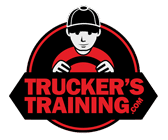
CDL grants can be used to help pay for your CDL training if finances are tight. Let’s face it, trucking school isn’t cheap. The trucking school tuition will be your most expensive expense in the beginning if you want to drive trucks for a living. Then add in costs for permits, health tests, and living expenses while attending school and the total bill can be overwhelming.
You can pay for trucking school without going into debt. Using CDL grants is an option if you’re on a budget. The government offers grants and scholarships specifically for truck-driving students – you just have to know where to look and how to apply. This article will show you several options to access free money to pay for your CDL school.
Grants to Cover Cost of CDL School
There are grants available to help pay for CDL schools. Every dollar helps when paying for an expensive program like truck driving school. Don’t assume you won’t qualify for free money and do your research. With some persistence, you can find ways to fund your training. Below are some options to get you free money.
WIOA Funding
The Workforce Innovation and Opportunity Act (WIOA) provides funding for CDL training through local workforce agencies. To qualify, you must meet certain income requirements and be unemployed or underemployed.
Visit your local workforce agency to apply for WIOA funding. They will evaluate your eligibility. If approved, the WIOA can cover the full cost of CDL school including tuition, fees, books, and supplies. Apply as early as possible.
State and Local CDL Training Grants
Many states offer grants and funding for CDL training through workforce development programs. These grants can cover all or part of your training costs. Check with your state’s Department of Labor or workforce agency to see what CDL training grants may be available. These grants can cover tuition, fees, books, and in some cases living expenses. Eligibility depends on factors like income level, employment status, and location.
The application process typically involves submitting financial information and a program application. These state grants are an excellent opportunity to get free or low-cost CDL training. Do some research on your state’s website to find programs you qualify for.
Vocational Rehab
Many people don’t realize that vocational rehabilitation programs offer grants and funding for CDL training. The vocational rehab program in your state provides resources for people with disabilities or health conditions to train for new careers.
Driving a commercial vehicle can be a realistic goal, even if you have a disability. Vocational rehab counselors will evaluate your situation, skills, and interests to determine if a CDL aligns with your abilities. If approved, they may pay for truck driving school, licensing and testing fees, medical exams, and other costs to help you earn your CDL.
To qualify, you’ll need to prove that your disability creates a barrier to employment and that a CDL will help overcome this barrier. Conditions like hearing or vision loss, limited mobility, and other physical or mental health issues may make you eligible. The key is showing how trucking can provide suitable work, given your circumstances.
Veterans Post 9/11 GI Bill®
Veterans who served on active duty after September 10, 2001, are eligible for the Post-9/11 GI Bill®. This bill provides up to 100% of tuition and fees for CDL training and licensing. The amount of benefits you receive depends on your length of service. This can cover all costs for a CDL program at an accredited truck driving school or community college.
To qualify, you must have received an honorable discharge, served at least 90 days of aggregate active duty service, and apply for benefits through the Veterans Affairs website. The application process includes verifying your information and service details.
Tribal Education
Many Native American tribes offer educational grants and scholarships for members to attend CDL school. These programs aim to provide job opportunities and support economic growth in tribal communities.
The education department of your tribe may offer grants or scholarships for members seeking a CDL. For example, the Cherokee Nation offers the Higher Education Grant which provides funding for members to attend vocational schools, including truck driving schools. The Navajo Nation offers the Navajo Nation Scholarship and Financial Assistance Program which provides grants for members to attend accredited vocational schools.
Check with your tribal education department about availability and eligibility for CDL school grants and scholarships.
Eligibility Criteria
To qualify for CDL grants and funding, you’ll need to meet certain eligibility criteria. The specifics will vary depending on the particular grant, but typically include:
Many CDL grants target low-income individuals, usually defined as earning less than a certain percentage of the median income in your area. Some grants specifically aim to help unemployed or underemployed people gain skills for a new career. Most grants also require you to be a resident of the state offering the funding.
Review the eligibility criteria carefully for any grants you want to apply for. Make sure you meet all the conditions before spending time filling out an application.
Conclusion
CDL grants can help fund your CDL schooling. While the application process may seem tedious, the end result of earning your CDL at a lower cost will be well worth the effort. Think of it as an investment in your future that can open up more career opportunities and increase your earning potential.

Marina was in corporate communications for over 15 years before becoming a freelance writer for TruckersTraining.com. She's been writing about transportation, and the supply chain and trucking industry for over five years. Her father was in the trucking and logging business which exposed her to the industry. Her passions include travel, nature and entrepreneurship.
